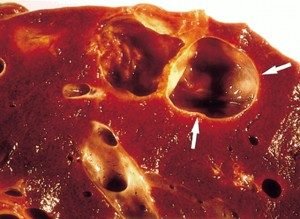Welcome to our comprehensive guide on inflamed liver. In this article, we will discuss the causes, symptoms, and treatment options for this condition. If you or someone you know is experiencing liver inflammation, it’s important to understand the underlying causes and seek appropriate medical attention. Read on to learn more about inflamed liver and how it can be managed.
Causes of Inflamed Liver
There are several factors that can contribute to liver inflammation. Understanding these causes can help you identify potential risk factors and take necessary precautions. Here are some common causes of inflamed liver:
- Alcohol abuse: Excessive alcohol consumption can lead to alcoholic hepatitis, a condition characterized by liver inflammation.
- Hepatitis viruses: Hepatitis A, B, and C can cause inflammation of the liver. These viruses are typically transmitted through contaminated food or water, sexual contact, or sharing needles.
- Autoimmune diseases: Conditions like autoimmune hepatitis and primary biliary cholangitis can trigger an immune response that targets the liver, leading to inflammation.
- Non-alcoholic fatty liver disease (NAFLD): This condition is characterized by the accumulation of fat in the liver, which can cause inflammation and damage over time.
- Medications and toxins: Certain medications, such as acetaminophen and statins, as well as exposure to toxins like industrial chemicals and pesticides, can contribute to liver inflammation.
Symptoms of Inflamed Liver
The symptoms of inflamed liver can vary depending on the underlying cause and the severity of the inflammation. Here are some common signs and symptoms to watch out for:
- Abdominal pain or discomfort
- Jaundice (yellowing of the skin and eyes)
- Fatigue and weakness
- Nausea and vomiting
- Loss of appetite
- Weight loss
- Swelling in the legs and ankles
- Dark urine
- Pale or clay-colored stools
If you experience any of these symptoms, it’s important to consult a healthcare professional for a proper diagnosis and treatment plan.
Treatment Options for Inflamed Liver
The treatment for inflamed liver depends on the underlying cause and the severity of the inflammation. Here are some common treatment options:
- Lifestyle changes: If alcohol abuse or obesity is the cause of liver inflammation, making lifestyle changes such as reducing alcohol consumption, losing weight, and adopting a healthy diet can help improve liver health.
- Medications: In some cases, medications may be prescribed to manage the underlying cause of liver inflammation. For example, antiviral medications may be used to treat hepatitis B or C.
- Immunosuppressants: If the inflammation is caused by an autoimmune disease, immunosuppressant drugs may be prescribed to suppress the immune response and reduce liver inflammation.
- Supportive care: In severe cases of liver inflammation, hospitalization may be required to provide supportive care, such as intravenous fluids and nutrition, to help the liver recover.
It’s important to note that the treatment plan will be tailored to each individual based on their specific condition and medical history. Therefore, it’s crucial to consult a healthcare professional for personalized advice.
FAQs on Inflamed Liver
Q: Can liver inflammation be reversed?
A: In some cases, liver inflammation can be reversed if the underlying cause is identified and treated promptly. However, if the inflammation persists for a long time or leads to liver damage, it may be irreversible.
Q: How is inflamed liver diagnosed?
A: To diagnose inflamed liver, a healthcare professional will typically perform a physical examination, review your medical history, and order blood tests to assess liver function. Additional imaging tests, such as ultrasound or MRI, may also be recommended to evaluate the liver.
Q: Can inflamed liver lead to liver cancer?
A: Prolonged inflammation of the liver can increase the risk of developing liver cancer. It’s important to manage liver inflammation and address the underlying causes to reduce this risk.
Q: Are there any natural remedies for inflamed liver?
A: While natural remedies may help support liver health, it’s important to consult a healthcare professional before trying any alternative treatments. Some natural remedies that may be beneficial include milk thistle, turmeric, and dandelion root.
Conclusion
Inflamed liver can be a serious condition that requires medical attention. By understanding the causes, symptoms, and treatment options, you can take proactive steps to manage liver inflammation and promote liver health. Remember, early detection and intervention are key to preventing further complications. Take care of your liver, and it will take care of you!
Fun fact: Did you know that the liver is the only organ in the human body that can regenerate itself? Even if a portion of the liver is removed or damaged, it has the remarkable ability to grow back to its original size within a matter of months.
Originally posted 2023-07-18 15:28:21.


